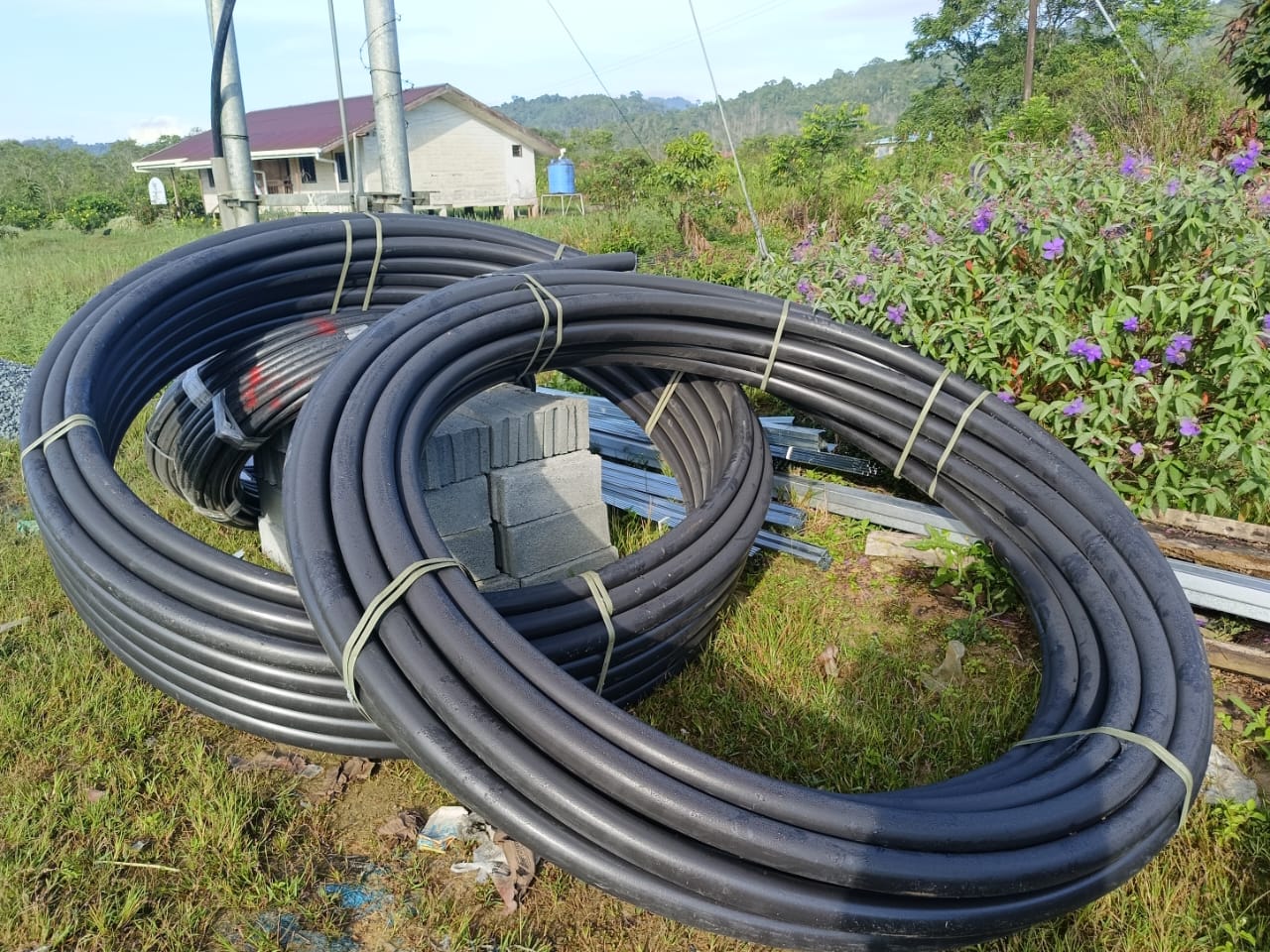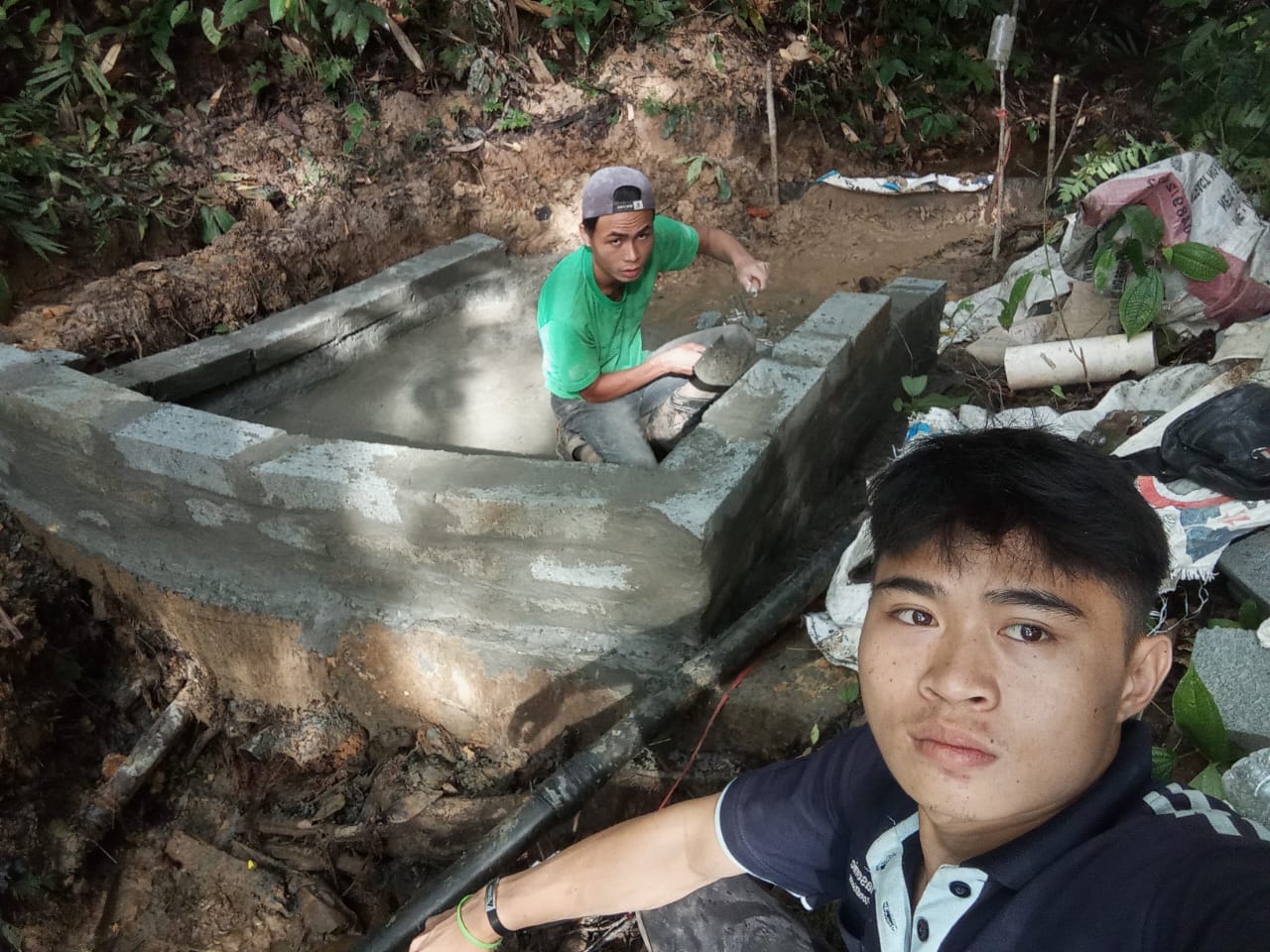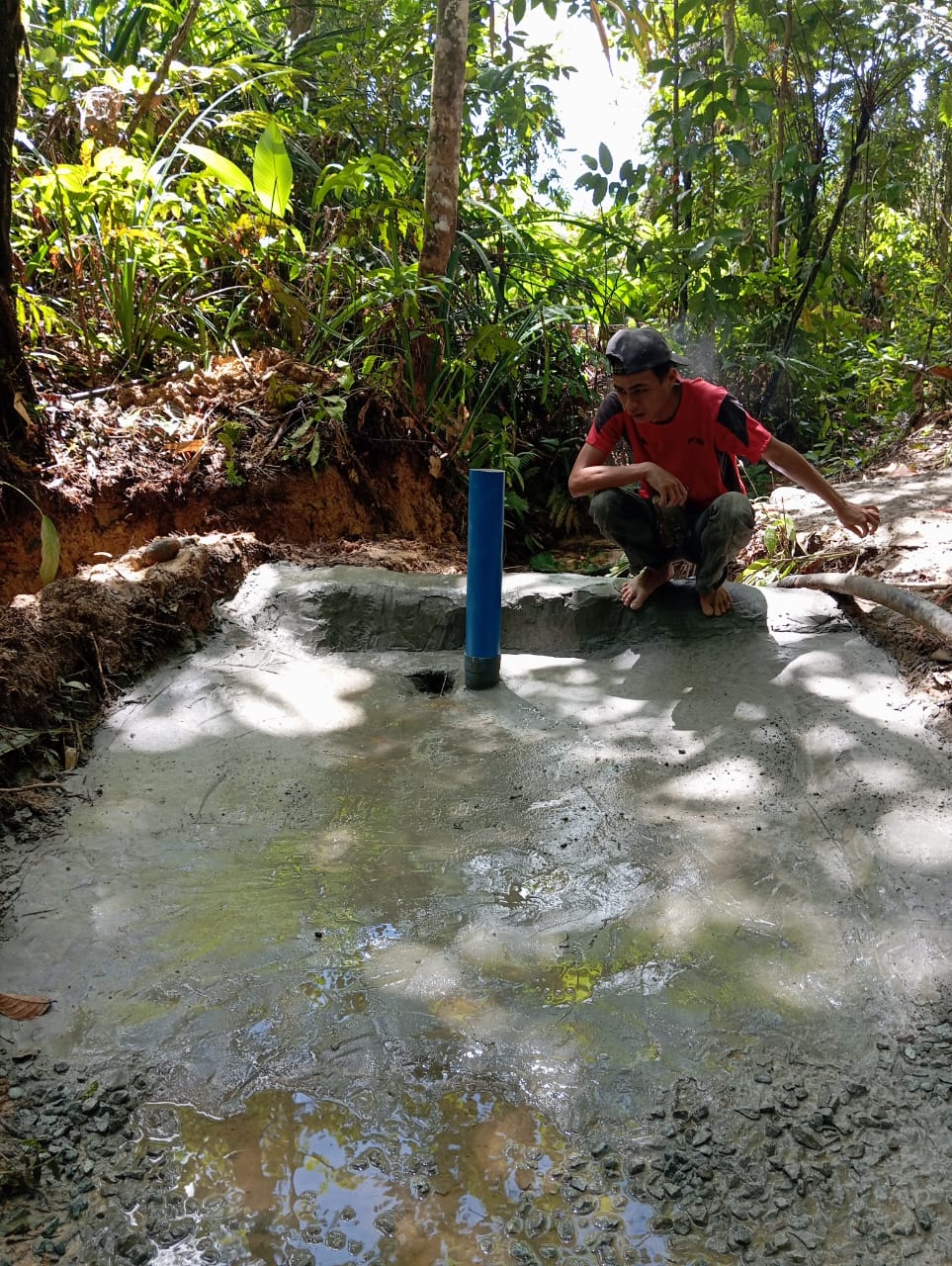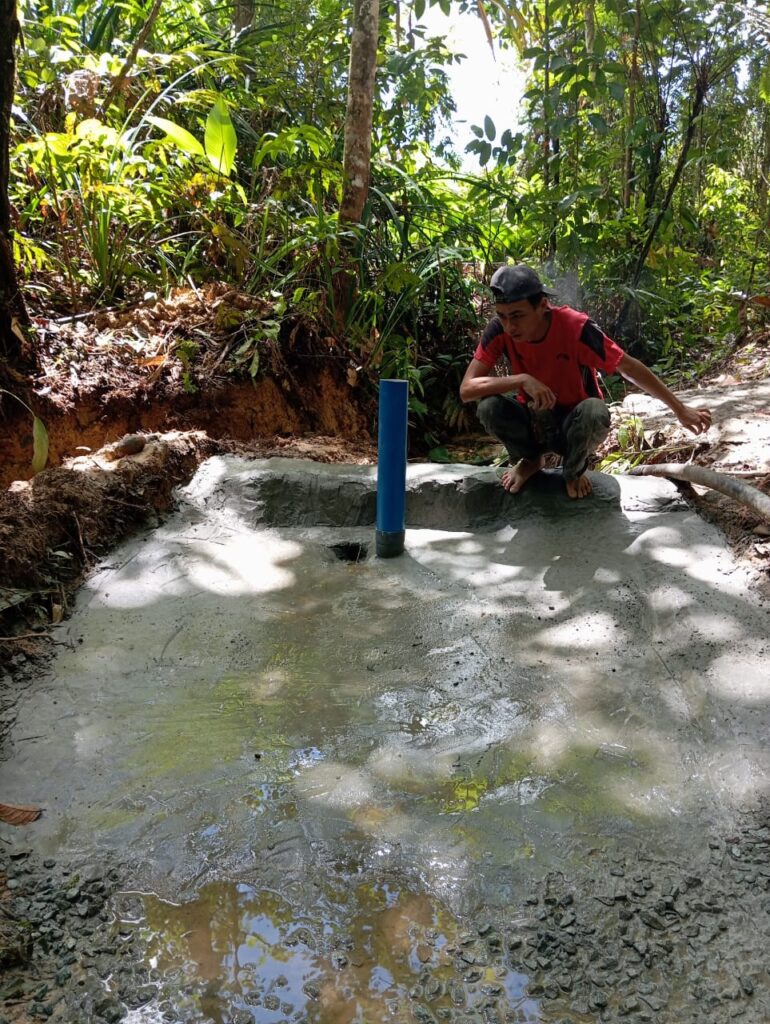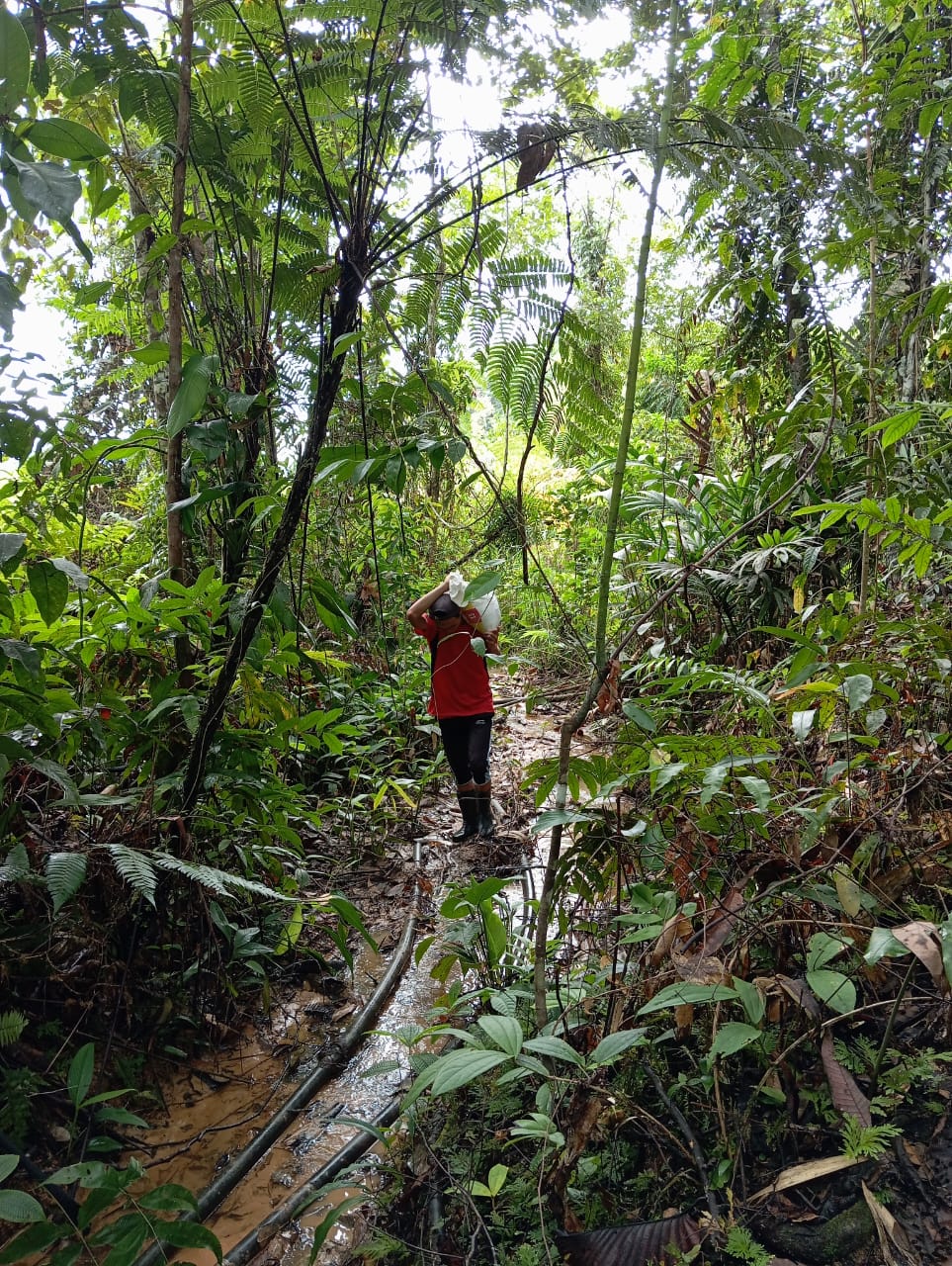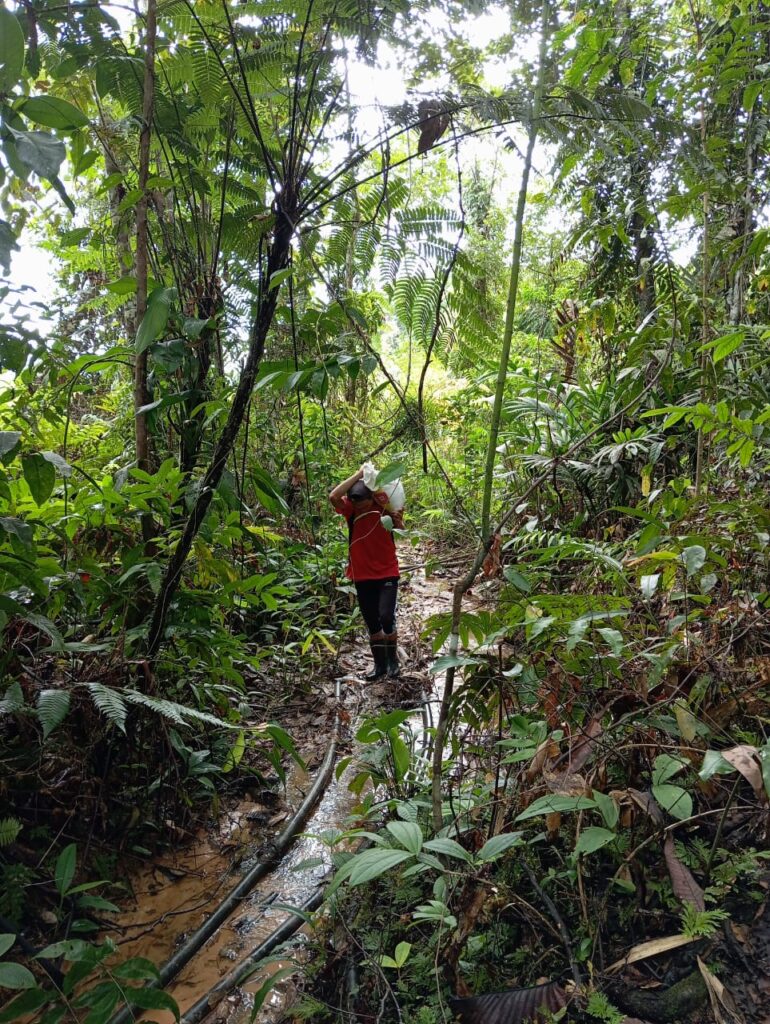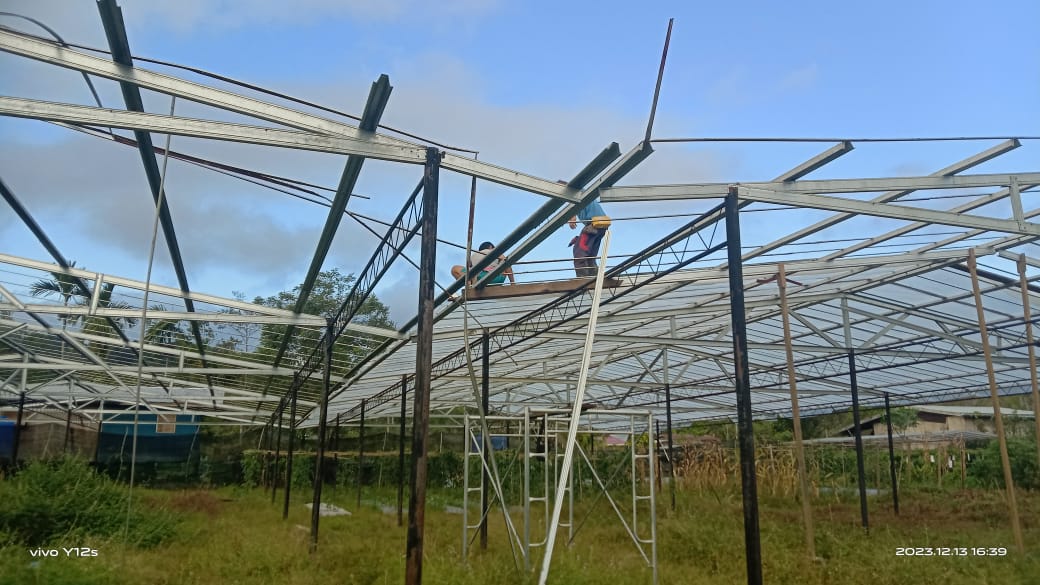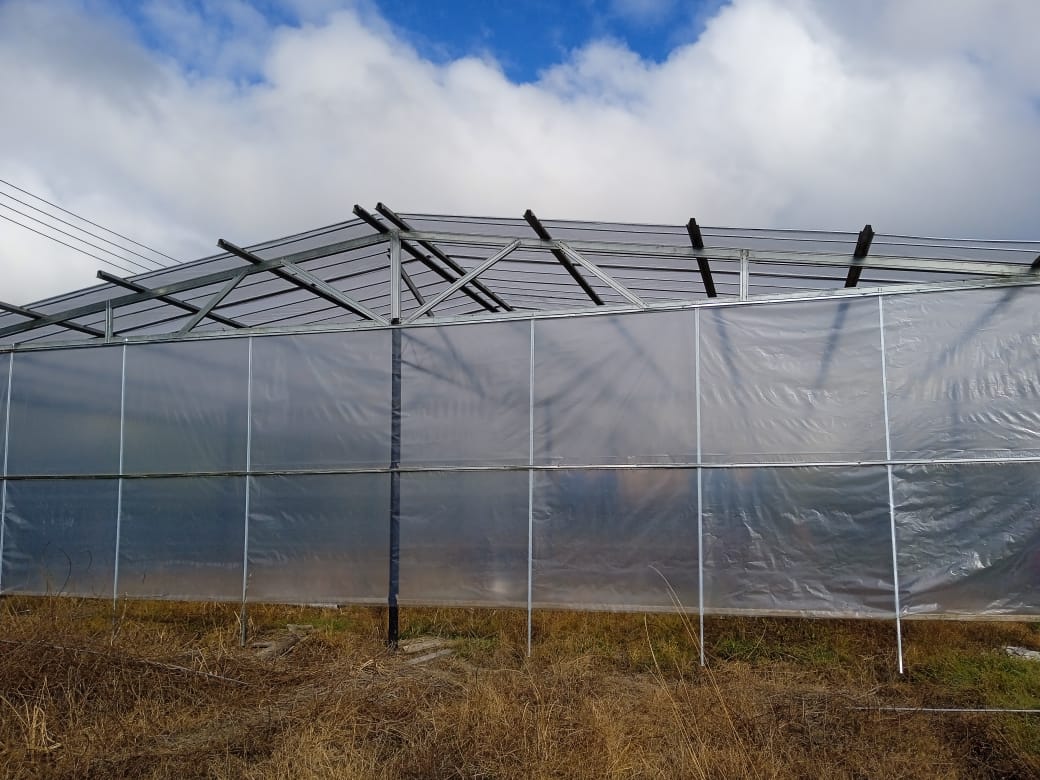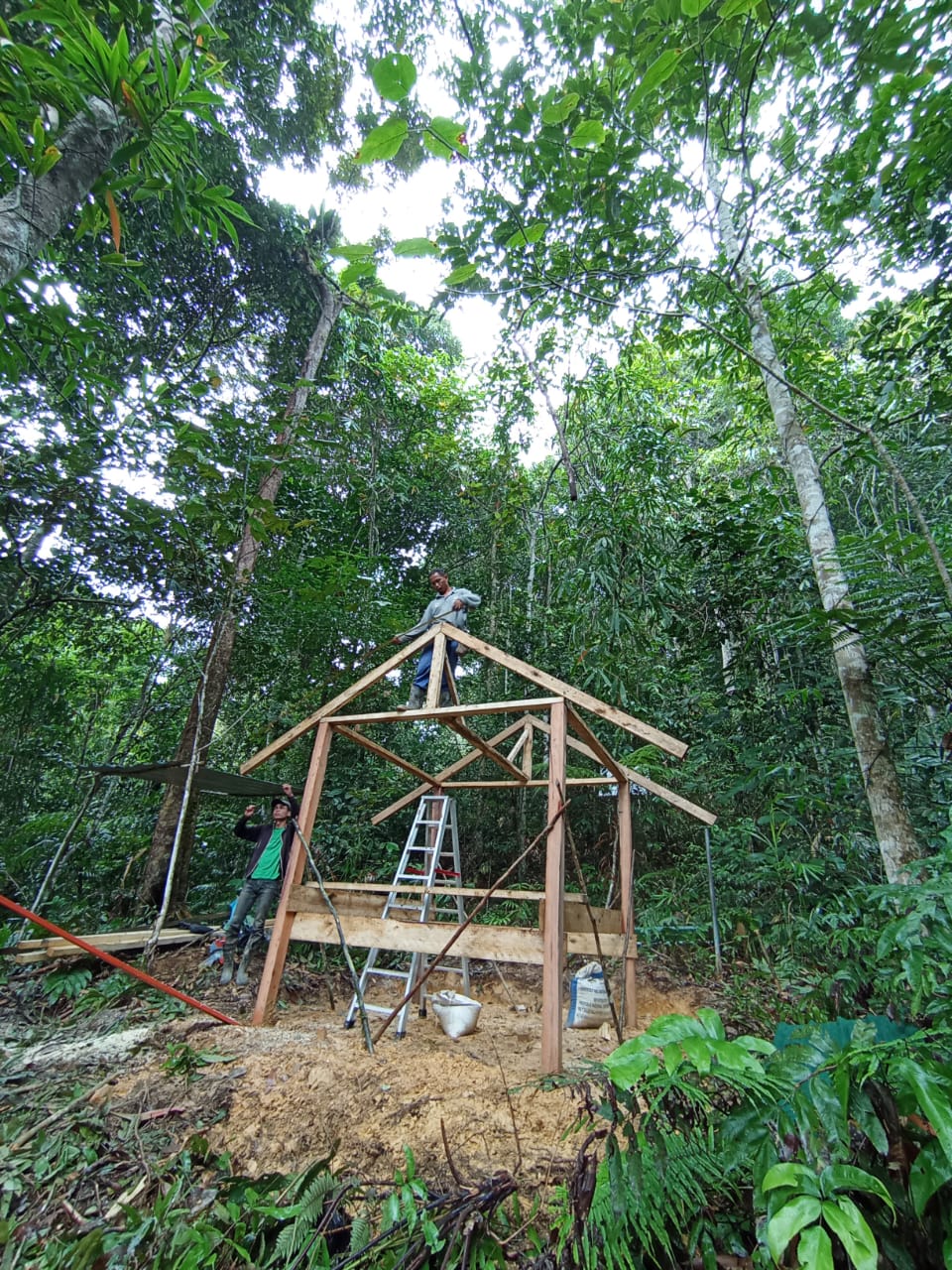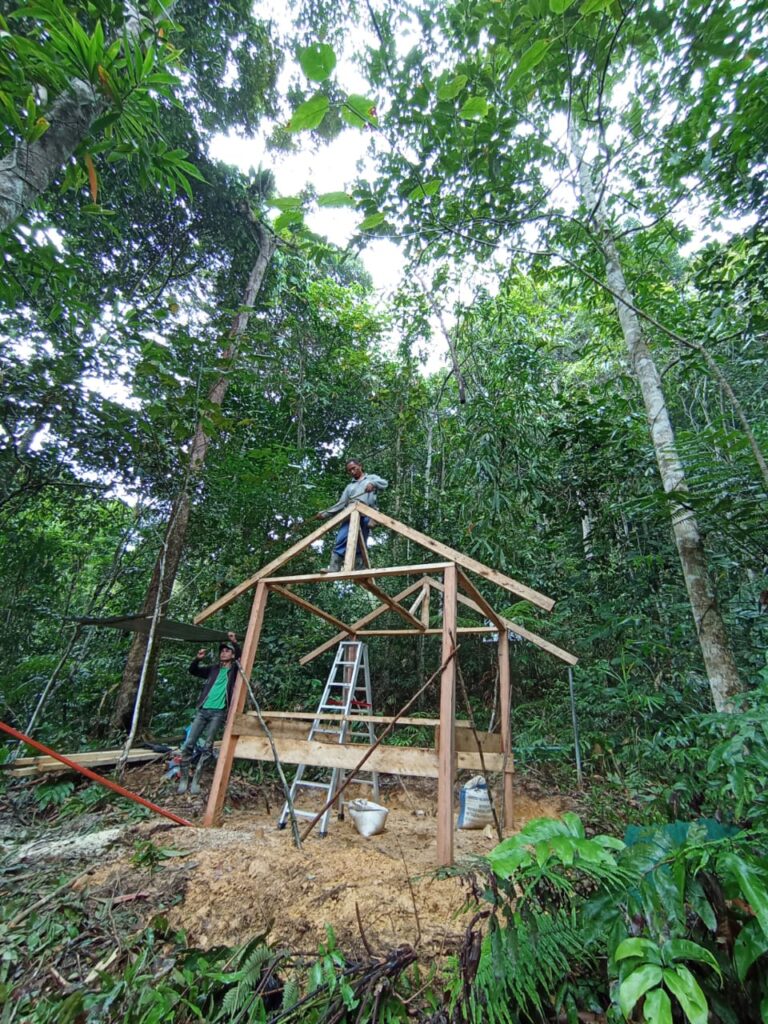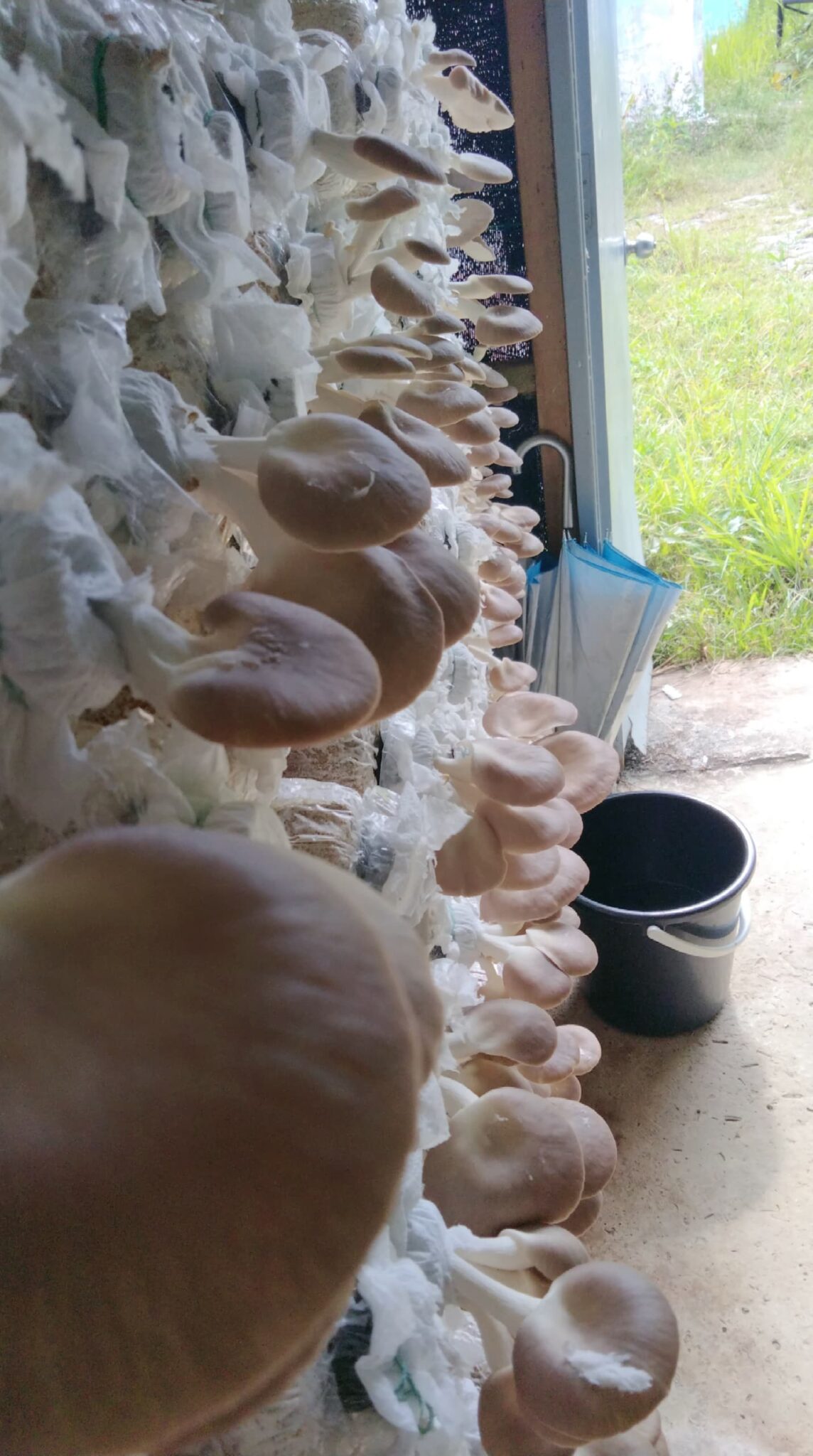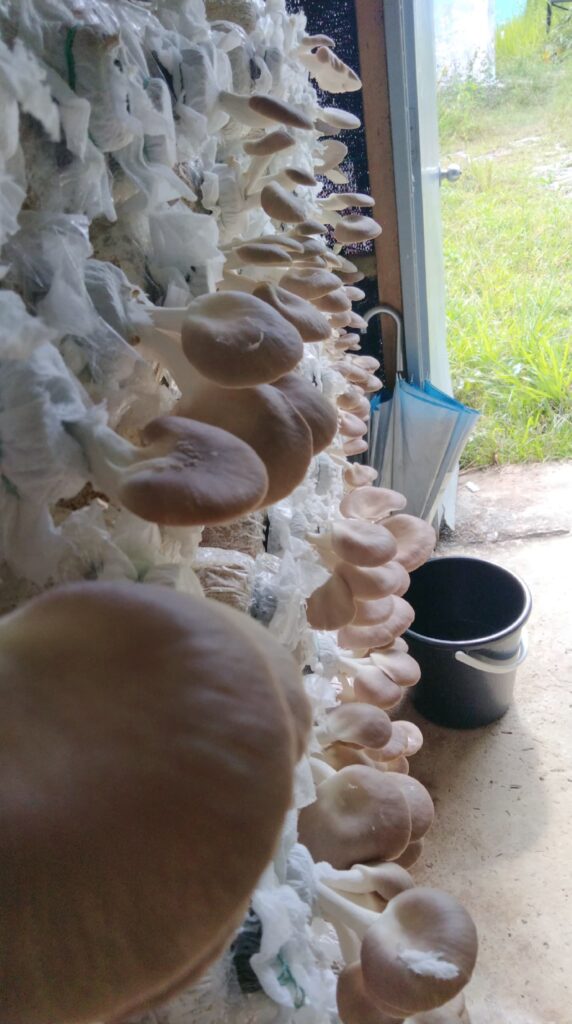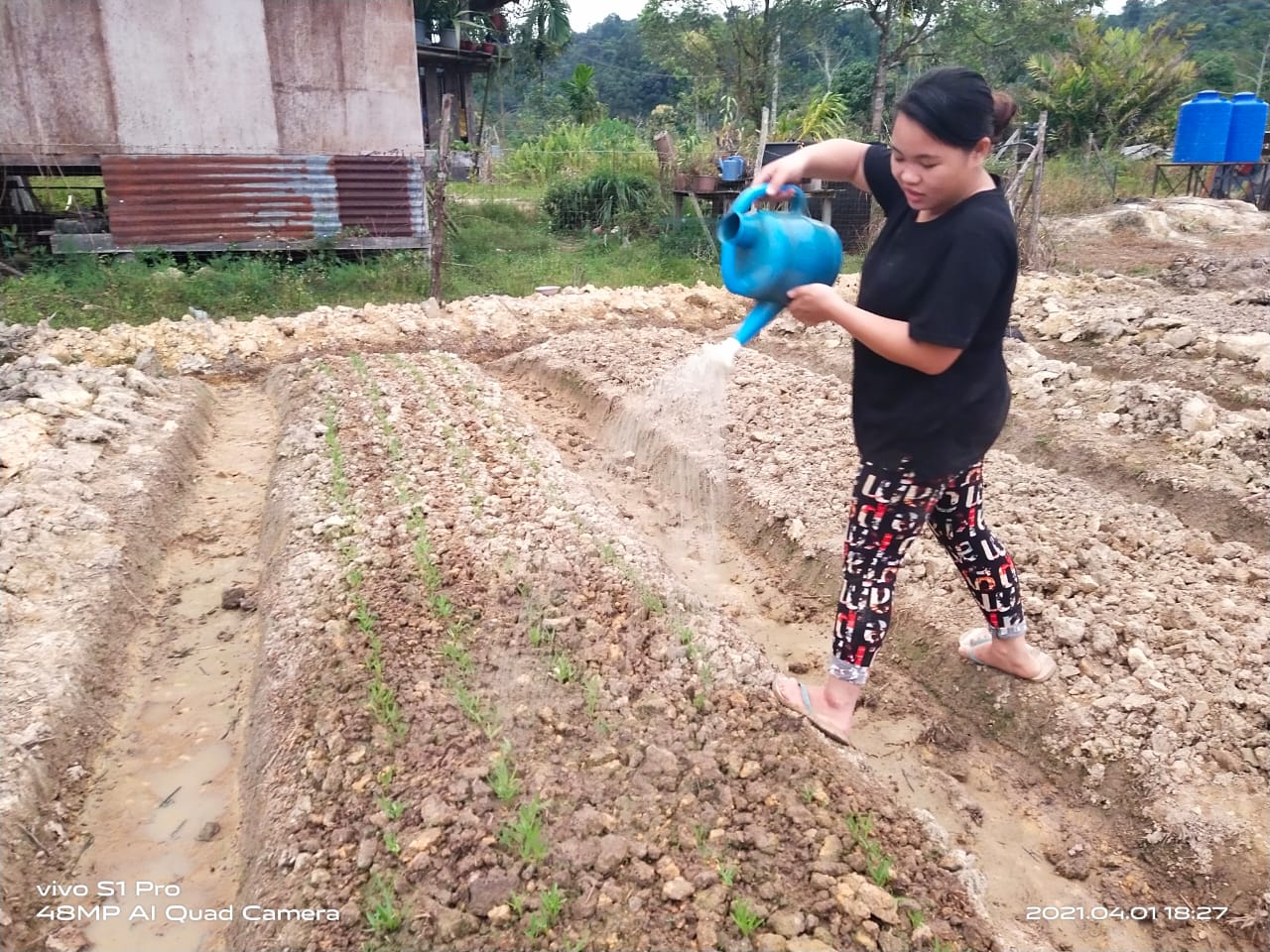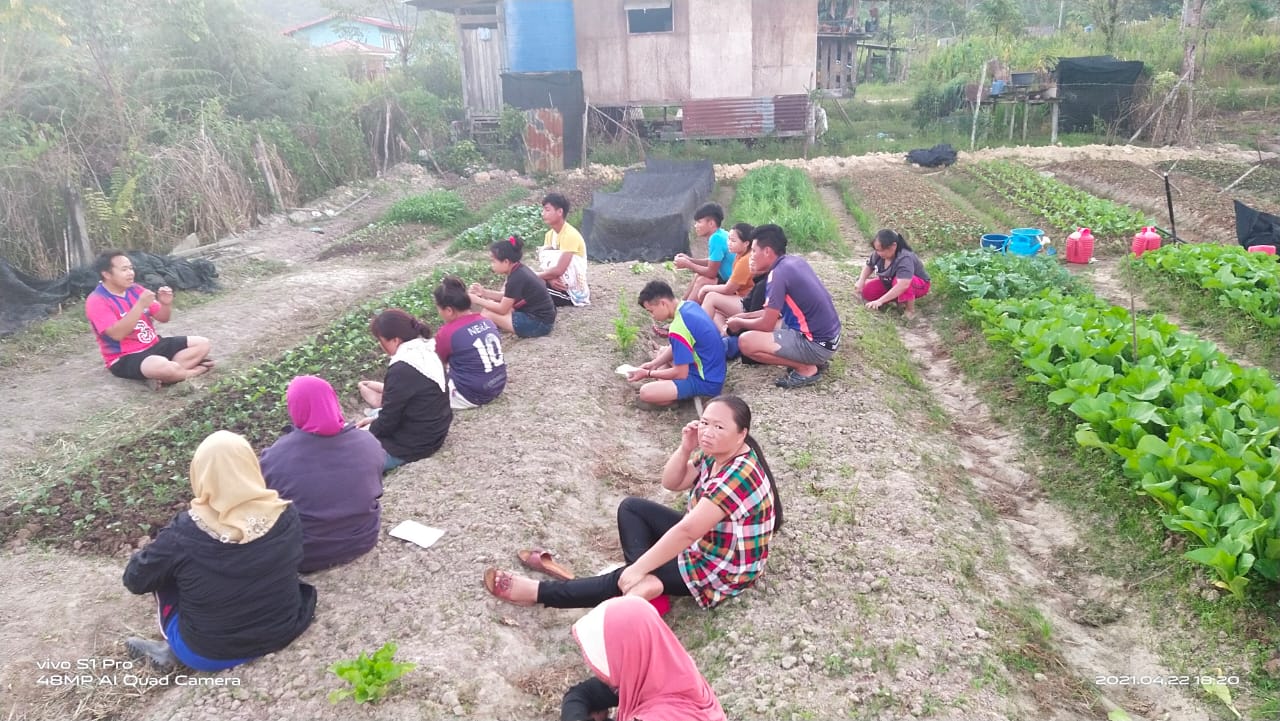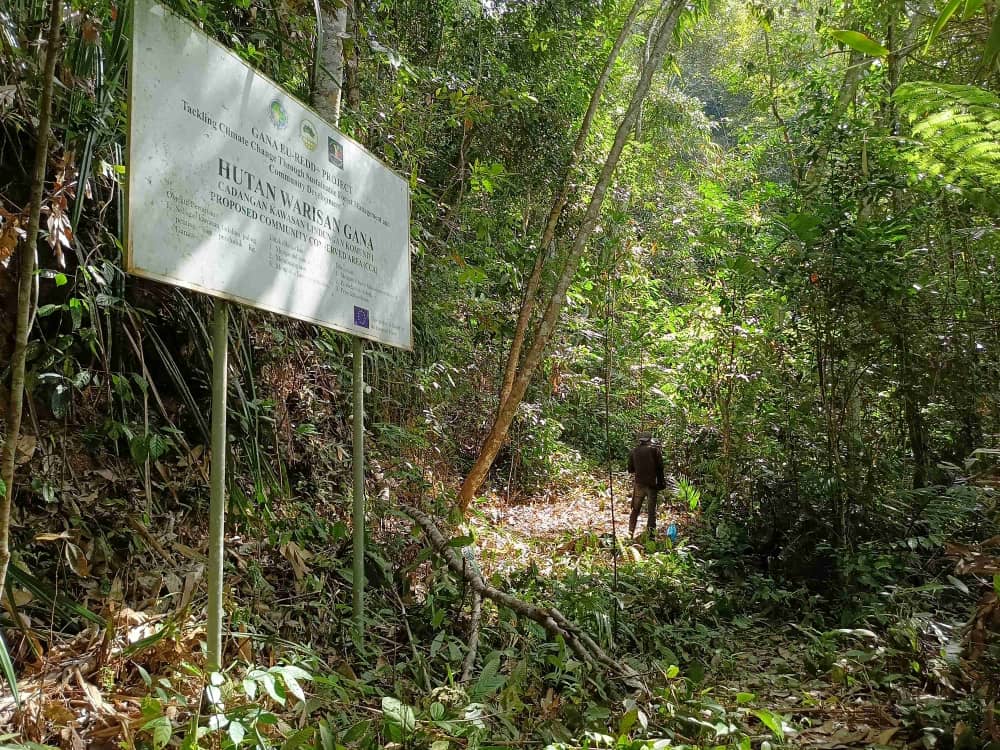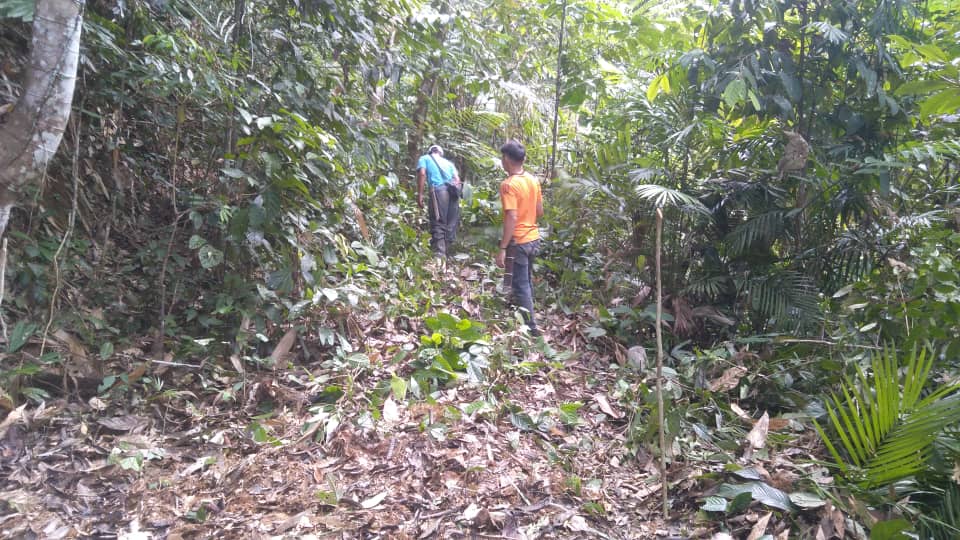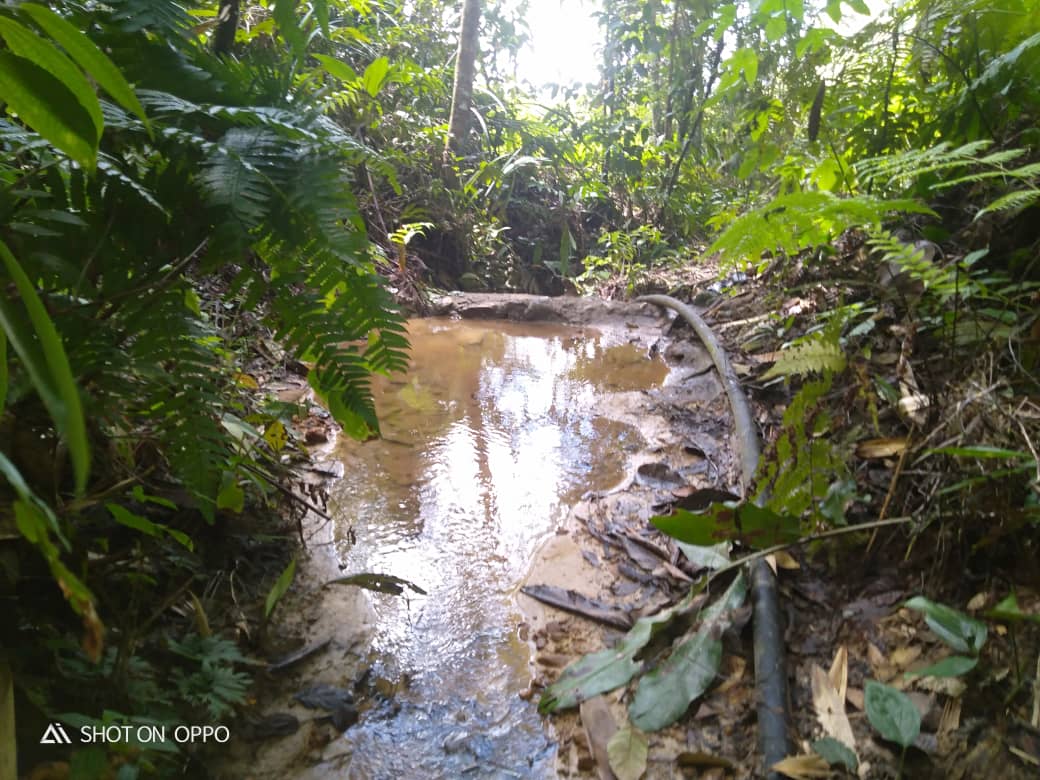The Lingkabau Forest Reserve is home to a level of biodiversity that is typical of Borneo forests—that is, the number of plants and animals is astounding. A 2023 study found 23 large or medium-sized mammal species, many of which are threatened or endangered. For starters, there are sun bears, Sunda clouded leopards, pangolins, Western tarsiers, deer (muntjacs), porcupines, and civet cats.
Near this natural treasure is the village of Gana. Its residents once lived in 10 villages scattered across the mountainous, forested area. They did not come to Gana by choice. During the late 1990s and early 2000s, Sabah’s government took the communities’ land and combined the villages into a kind of relocation camp that has become a permanent settlement. Some of the forest was protected, and some was opened for commercial logging.
Unsurprisingly, people have been struggling since they had to relocate. They are far from their traditional farmlands or have lost them altogether. Now they must subsist by growing hill rice, pineapples, and yams, and by tapping rubber. Electricity is unreliable, and there is no phone service except at the top of a hill outside the village. There are many young people, but no high school.
The community is committed to protecting the forest. If the Sabah Forestry Department opened it up to logging, it could be disastrous. It would risk serious flooding and endanger the village water supply, essential during the long dry season. The forest also serves as a wildlife corridor connecting state forest reserves.
The community will use a grant to expand its fledgling organic mushroom farming initiative and to install a gravity water system. Our project partner is the Research Institute for Culture and Environment, whose founder helped establish the Gana community-managed forest. We worked successfully with RICE on an ecotourism project in nearby Rungus Nahaba.


